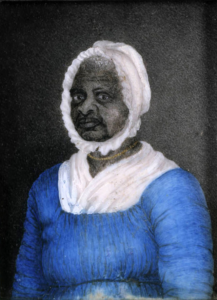The End of Slavery in Massachusetts: How the Power of Law Fulfilled the Promise of Justice

In the same year that the American Revolution officially ended and the Treaty of Paris was signed — 1783 — the Commonwealth of Massachusetts effectively abolished the institution of slavery. Some 80 years before the signing of the Emancipation Declaration and 82 years before the last enslaved individuals in Galveston, Texas were freed in 1865, Massachusetts determined that enslaving Black men and women was incompatible with its new state constitution and ended the barbaric practice. And all of it was achieved through the legal system, not through armed conflict.
This, of course, does not excuse the participation of the Commonwealth in an institution that has wrought so much damage on generations of Black Americans. Massachusetts, like our nation as a whole, must grapple with the destructive legacy and lasting trauma of slavery and with the massacres and forced relocations of Native and indigenous people within our borders.
But as we celebrate Juneteenth on June 19, which marked the unequivocal termination of the abhorrent practice in the United States, it is also worth knowing the history of slavery’s end in Massachusetts — and how the legal system and two courageous individuals played a pivotal role in it.
Elizabeth Freeman (also known as Mum Bett) and Quock Walker utilized the Commonwealth’s legal system to not only secure their own freedom but to stop slavery in the state.
Mum Bett was born in 1742 in the state of New York and was purchased as an infant by John Ashley of Sheffield, Massachusetts. As the Massachusetts Historical Society tells the story, after an altercation took place at the Ashley house, Mum Bett refused to return to the household and instead turned to an abolitionist lawyer named Theodore Sedgewick. Sedgewick took the case, which included another enslaved individual in the Ashley household and became Brom & Bett v. Ashley. In county court, the jury decided in favor of Mum Bett and Brom, who were the first formerly enslaved people to achieve freedom after the ratification of the state’s constitution. Freeman died in 1829 after spending years as an employee of Sedgewick and becoming a respected midwife.
Quock Walker lived in Barre, Massachusetts, becoming the property of a man named Nathaniel Jennison, despite promises from the man who previously owned him — James Caldwell — to set him free. According to the Massachusetts Historical Society, Walker fled Jennison, taking refuge in the house of Caldwell’s brother. Jennison then beat Walker, which resulted in one criminal and two civil trials. Eventually, the Supreme Judicial Court made rulings that led to Walker’s freedom.
You can read more about the significance of both Mum Bett and Quock Walker — and how slavery’s abolition also led to the establishment of judicial review in Massachusetts — at the Commonwealth’s website.
Neither Mum Bett nor Quock Walker are well-known names but it is important that their stories be as familiar to Massachusetts residents, young and old, as Crispus Attucks and Paul Revere. It’s significant that at the dawn of our nation’s founding, these two individuals relied on the legal system to achieve freedom. We all recognize that far too often what is “legal” is not in fact “just” or “justice.” But their stories are a reminder that — at its best — the legal system can, and must, be a tool for justice and equality. It is also a reminder that lasting social change starts with courageous individuals and communities who stand up against injustice. Indeed, the entire practice of “law reform” is based on the foundational premise that the law, in concert with individual and community activism, is an instrument of empowerment and a catalyst for systemic change.
It has been almost 250 years since these events took place, and in the intervening years, Massachusetts — and our criminal justice and law enforcement systems, along with so many other systems — have often failed to achieve the equality that our state’s constitution promised. Juneteenth is a reminder to all of us that there is still more work we all need to do to achieve those goals and to dismantle the barriers of structural racism that are used to oppress Black and Brown people. MLRI remains committed to doing the hard but necessary work of anti-racism.
